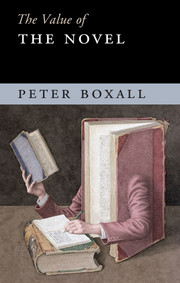1 - The Novel Voice
from Part I - Art
Published online by Cambridge University Press: 05 September 2015
Summary
If someone speaks, it gets lighter.
Sigmund Freud, General Theory of the NeurosesBy the voice a faint light is shed. Dark lightens while it sounds.
Samuel Beckett, CompanyI
I want to start a discussion of the value of the novel, then, by thinking about the voice in which the novel speaks to us, and I want to ask, more specifically, what the experience of attending to that voice is like – to ask, in effect, what you hear when you read. Do you hear what you are reading as a voice in your head? Does the novel speak in a particular kind of voice, a voice specific to its form, which is proper to the novel itself? Is the novel as a form particularly well adapted to creating the conditions of voice and of hearing, to producing a scenario in which a speaker addresses us in what George Eliot has called our ‘inward voice’? And does this inward voice talk to us in a particularly intimate way, entangling itself with the voice with which we think, with which we speak to ourselves? As Don DeLillo's narrator puts it, at the shattering opening of his novel Underworld, is it the case that the novel ‘speaks in your voice’, entering into the most private spaces in which you give sound and form to thought and words? Does the value of the novel emerge in some way from its uncanny capacity to animate voice, to capture the rhythms and modulations not only of the voices of others, but of our own voice as it sounds in our head?
These, in a sense, are questions we have trained ourselves not to ask. Ever since Michel Foucault began his famous 1969 lecture ‘What Is an Author?’ with Samuel Beckett's question, ‘What does it matter who is speaking?’, we have become accustomed to treating the question of the speaking voice, as it relates to reading and writing, with suspicion. Both Foucault, in 1969, and Roland Barthes, in his equally influential 1968 essay ‘The Death of the Author’, insist that it does not matter in the least who is speaking.
- Type
- Chapter
- Information
- The Value of the Novel , pp. 19 - 38Publisher: Cambridge University PressPrint publication year: 2015



